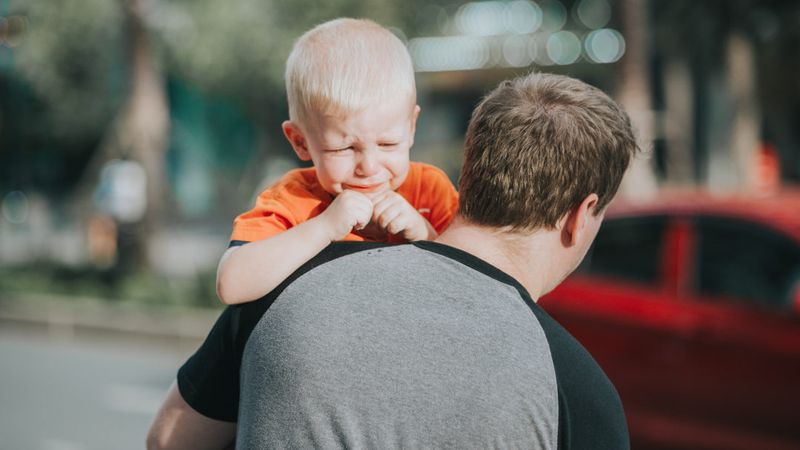16 Reasons Saying Goodbye Hurt So Much Even If You Don’t Love Anymore, According To Psychology
The act of saying goodbye can be deeply painful, even when the love that once connected two people has faded. Psychology offers insights into why these farewells can still tug at our hearts, revealing complex emotional ties that go beyond simple affection.
These ties are woven through our identity, memories, and even our sense of self-worth. As we explore these reasons, we gain a compassionate understanding of our emotional landscapes, validating the turmoil that accompanies letting go.
1. You’re Grieving What Could’ve Been—Not What Was

The heartache of goodbye often stems from mourning potential futures rather than past realities. This loss is not about the past relationship’s shortcomings but the dreams never realized.
The mind clings to ‘what ifs,’ romanticizing possibilities that never came to fruition. In these moments, the goodbye signifies the end of those imagined journeys, and the sorrow is rooted in unfulfilled hopes. This narrative of potential is what often grips us, turning farewells into a poignant reminder of life’s unpredictability and the fragility of dreams.
2. Your Identity Was Shaped Around Being “Us”

Relationships often become integral to our identity, crafting a version of ‘us’ that feels complete. When it’s time to part ways, the mirror shatters, challenging self-perception. The absence of ‘us’ leaves a void, creating an identity crisis.
One must rediscover self-worth outside the relationship. This transition is emotional labor, requiring one to redefine roles and purpose. The feeling of incompleteness underscores the pain of goodbye, as it involves rebuilding identity and finding new paths. The process is both daunting and liberating, highlighting the complex interplay of love and self-awareness.
3. You’re Wired for Connection—Even When It’s Not Healthy

Human brains are biologically inclined towards connection, even in unhealthy settings. Our need for belonging can trap us in unhealthy patterns, making it hard to sever bonds. This biological wiring complicates goodbyes, as it goes against ingrained instincts.
Even when love fades, the urge to connect endures, and saying goodbye feels counterintuitive. The struggle to untangle these emotional wires adds layers to the farewell experience, as the heart grapples with letting go and moving forward, challenging our primal need for attachment and community.
4. Letting Go Feels Like Failure—Even When It’s a Win

Letting go can evoke feelings of failure, even when it’s the healthiest choice. We’re conditioned to view endings as failures rather than victories of self-preservation. This mindset turns goodbyes into tests of worth, making us question past decisions.
The paradox lies in recognizing that leaving doesn’t equate to failing. It’s an act of self-respect, acknowledging that not every connection is meant to last. This duality between perceived failure and genuine growth fuels the emotional complexity of farewells, urging us to redefine success in personal terms.
5. You’re Not Just Losing Them—You’re Losing Routines

Goodbyes dismantle the comforting rhythms of daily life. These routines, once shared, foster familiarity and stability. When they vanish, the void is palpable. The absence of these shared moments disrupts the normalcy, creating a sense of disorientation. Ending a relationship is not merely about losing a person but relinquishing the life built together, layer by layer. These lost routines, once inconsequential, become significant reminders of change. They anchor us to time and place, making their loss a profound aspect of the goodbye process.
6. You’re Attached to the Memories, Not the Person

Often, the attachment lingers not to the person but to the memories shared. These snapshots represent times when happiness was genuine, even if transient. The nostalgia they evoke binds us to the past, making it difficult to separate the person from those cherished memories.
This emotional hold complicates goodbyes, as the heart mourns the loss of past happiness rather than the present relationship. It’s the longing for those joyful times that intensifies the farewell, independent of current realities.
7. You Invested Time—And We’re Built to Protect Sunk Costs

The investment of time in a relationship creates an illusion of value, akin to the concept of sunk costs. We guard these investments, even when they’re detrimental, due to a psychological bias towards preserving what we’ve poured ourselves into.
This sunk cost fallacy makes goodbyes challenging, as the mind equates time spent with worth. Letting go means acknowledging past investments may not yield future returns. This realization, while liberating, is emotionally taxing, underscoring the intricate connection between time, value, and emotional attachments.
8. Part of You Still Wants Their Approval

Even when relationships end, the desire for validation persists. This longing for affirmation is rooted in deep-seated beliefs about self-worth. It’s not just the love that fades; the need for acceptance lingers, complicating goodbyes. This yearning is powerful, coloring memories and influencing future interactions.
The farewell becomes a struggle between seeking closure and yearning for acknowledgment. This emotional tug-of-war highlights our innate desire for validation, which persists even when rational understanding suggests otherwise, making goodbyes a complex emotional journey.
9. You’re Mourning the Dream Version of Them

In relationships, we often craft idealized versions of our partners—shadows of who they truly are. When goodbyes come, it’s not just the real person we’re letting go of, but also this idealized image.
These perfect visions, constructed from hopes and desires, add layers to the separation. The mourning process includes acknowledging that these dreams, while beautiful, were never reality. This recognition is bittersweet, as it involves the loss of both the tangible and the fantastical, deepening the emotional impact of farewells.
10. Change, Even Good Change, Triggers Fear

Change, whether positive or negative, invokes fear. Goodbyes signify change, unsettling the comfort of known dynamics. This fear of the unknown grips us, even when the change promises growth. The heart craves stability, making transitions daunting.
As we say goodbye, we’re forced to confront these fears, acknowledging that what lies ahead is uncertain. This tension between fear and anticipation makes farewells emotionally charged, highlighting the human tendency to resist change, even when it’s necessary for personal evolution.
11. You Feel Guilty For Feeling Relief

The relief felt after a goodbye can be overshadowed by guilt. These conflicting emotions make farewells complex, as the heart acknowledges freedom while the mind questions if this relief is justified. This guilt stems from societal norms dictating how one should feel post-separation. It becomes a silent burden, complicating the healing process.
This duality is part of the emotional landscape of goodbyes, where liberation and remorse coexist, urging reflection on personal values and societal expectations, making the journey of letting go deeply nuanced.
12. It Stirs Up Old Abandonment Wounds

Goodbyes can awaken old abandonment fears, echoing childhood insecurities. These lingering wounds resurface during farewells, intensifying the emotional weight. The subconscious mind intertwines past and present, complicating the separation process.
This emotional resurgence is beyond logic, tapping into primal fears of being left behind. It underscores why goodbyes can feel disproportionately painful, as they rekindle past traumas and challenge one’s sense of security, making the act of letting go a profound emotional experience.
13. You’re Used to Choosing Them—Even if It Cost You

In relationships, choices often favor the partner, sometimes at personal expense. This habit, ingrained over time, makes goodbyes difficult, as it challenges the routine of self-sacrifice. Letting go means reclaiming autonomy and reevaluating priorities. This shift, while empowering, is emotionally complex.
It involves breaking the cycle of putting others first, which has become second nature. This change in dynamics adds depth to the farewell, as it requires reassessment of personal values and desires, making the process both challenging and liberating.
14. You’re Scared of Missing Something—Even if It Never Existed

The fear of missing out haunts many during goodbyes, even over imagined gains. This fear stems from the potential of losing something valuable, even if it never existed.
The mind conjures scenarios where staying might uncover hidden joys, complicating the decision to leave. This emotional uncertainty underscores the complexity of farewells, as it involves differentiating between reality and illusion. The heart’s hesitance is not just about loss but also about the fear of unrecognized opportunities, making the act of letting go an intricate emotional balance.
15. Letting Go Reminds You of All the Other Losses

Goodbyes serve as reminders of previous losses, echoing the cyclical nature of life. This cyclical reminder intensifies the current goodbye, as it stirs emotions linked to past separations.
The heart re-experiences the pain and growth associated with past endings. This layered experience adds depth to the current farewell, as it intertwines with the tapestry of life’s ongoing narrative of loss and renewal, making goodbyes a poignant reflection on life’s continuity.
16. Saying Goodbye Means Choosing Yourself—And That’s Emotional

Choosing to say goodbye often means prioritizing self-growth over a stagnant relationship. This choice, while empowering, is laden with emotional weight. It signifies a commitment to self-improvement and personal autonomy.
The decision to choose oneself over another challenges ingrained notions of loyalty and love. This internal conflict adds complexity to the farewell, highlighting the courage it takes to prioritize one’s own needs. The emotional journey is profound, as it involves self-discovery and acceptance, redefining what it means to truly care for oneself.






